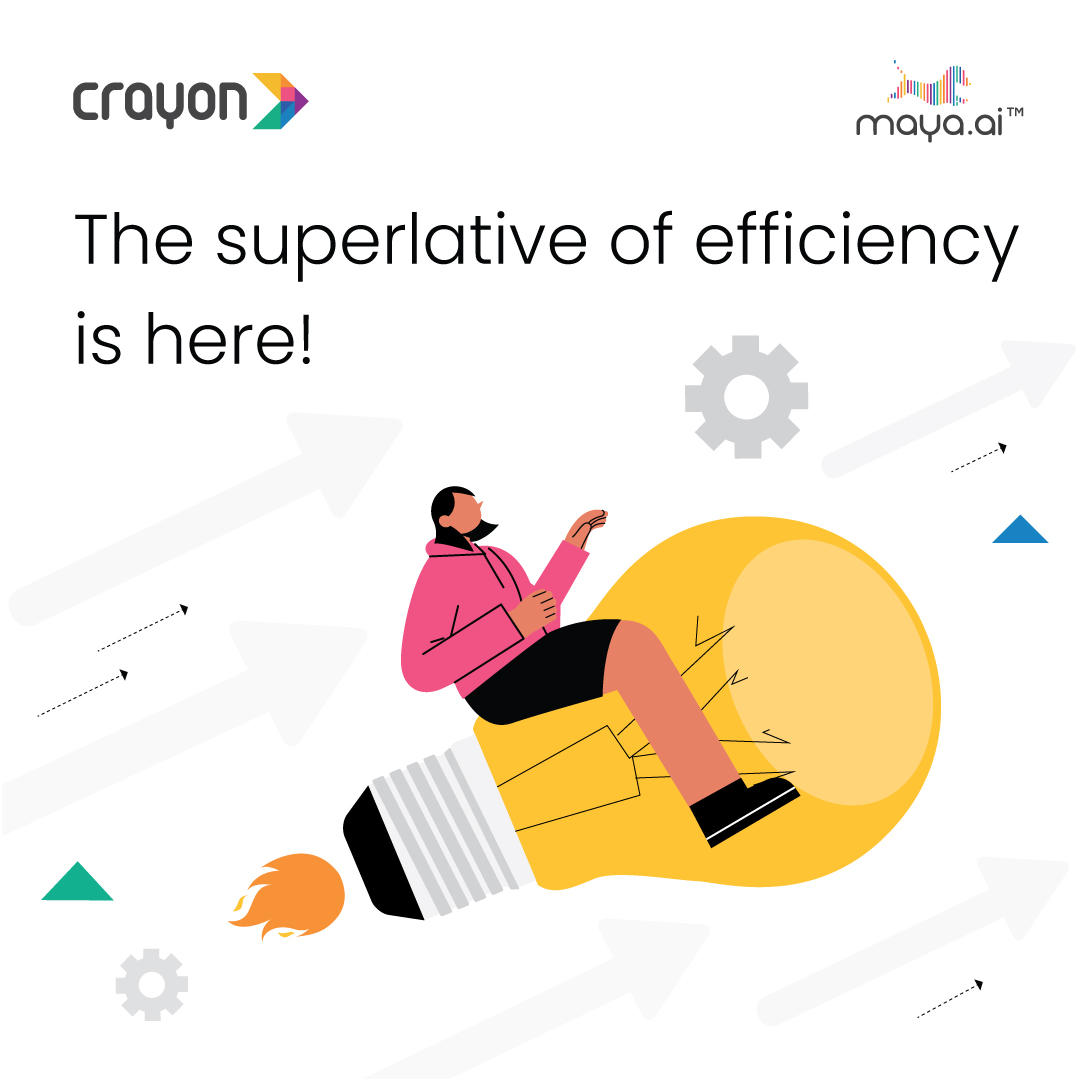Source: Times TechBuzz
Date: 17-Oct-2022
Contributors
Girish Singhania, CEO, EduBridge
Omer Basith, Co-Founder & CEO at Virtual Forest
Pratyush Roy, VP, Go-to Market, Crayon Data
Prateek Dwivedi, Co-Founder and Chief Product Officer, 5ire
Anand Chandra, Executive Director & Co-founder, Arya.ag
Sunita Handa, Principal Advisor, Protect.ai
Vinayak Shrivastav, Co-founder and CEO of Video Verse
Vasudevan Swaminathan, Founder and President, Zuci Systems.
India has the world’s third largest start-up ecosystem followed by the United States and China. As of August 29, 2022, India had over 77,000 DPIIT-accredited start-ups across 656 districts. Startups in India are rapidly growing. Along with innovative solutions, they have created large-scale employment.
India has 107 start-up unicorns as of September 7, 2022. 44 unicorns in which worth $93.00 billion were born in 2021, while 21 unicorns worth $26.99 billion are born in 2022
Bengaluru, the heart of India’s high-tech industry, is India’s unicorn capital, followed by Delhi (NCR) and Mumbai. This ecosystem is not limited to the Tier I cities and spreads to the last district.
Traditional sectors such as Fin-tech, E-commerce, Supply Chain & Logistics, Internet Software & Services continue to dominate the arena, but a strong wave of unconventional sectors such as Content, Gaming, Hospitality, Data management & analytics, and so on are making inroads.
In the electronics sector, the increasing demand for electric vehicles, renewable energy, consumer electronics devices along with loT and automation has increased the demand for Mechatronics. Control Systems, Electronics Software, Embedded Software, Custom Electronic Solutions, Satellite Telemetry Systems, Dataloggers, and Plotters, Telemetry, Remote Operations Control.
Factors contributing to growth
Many factors are contributing to India’s startup ecosystem growth. The government is helping new startups through loans, tax holidays, awareness workshops/seminars, patent protection, and by easing the regulatory framework.
“The government has played a huge role in boosting entrepreneurship, especially through the Startup India & Make in India initiatives. Various programs aim to support startups with funding, industry & academia partnerships, incubation, process simplification and subsidies,” said Omer Basith, Co-Founder & CEO of Virtual Forest.
“There is also growing opportunity in the manufacturing and hardware sectors with EV and the Consumer electronics, expected to expand at a CAGR of 36% and 25% respectively,” he further added.
India has a youthful population with great potential and skill. These young people are motivated and enterprising. Potential founders around the country have been intrigued by success stories. Further elaborating on this Girish Singhania, CEO of EduBridge said,
“The youth is driven by the versatility of the internet, giving them a reason to commence with a side hustle that eventually emerges as a successful business model. Industry and Government are motivating and supporting youth through ‘Idea Incubators’ and ‘Think Tanks’. It is one of the reasons why even the younger generation of India can experiment with their ideas and set up start-ups.”
There is no dearth of funding sources in India. Fund for starting a new business is easily available to entrepreneurs. According to NASSCOM-Zinnov research, Indian start-ups raised a record $24.1 billion in 2021, a twofold increase above pre-Covid levels, with $6 billion financed via public markets through 11 start-up IPOs.
“Effortless financial options have made it easier for beneficiaries to start something new. Apart from traditional loans, the various other financial options include, angel investing, crowdfunding, seed funding, and more. After the numerous scams, we witnessed in the 80s and 90’s the financial environment is conducive to business development making the ecosystem robust and transparent at the same time.”, Girish further added.
There are currently 692 million active internet users in India, with 351 million from rural India and 341 from urban India. According to research, India would have 900 million internet users by 2025. Commenting on the role of Internet access in fulling start up’s growth in India, Pratyush Roy, VP, Go-to-Market at Crayon Data says, “The rising adoption of the internet (–700 million users) and the market size provides access to a larger TAM for start-ups to leverage. Digital adoption has seen rapid growth in the last few years especially post-pandemic, thereby allowing start-ups to proliferate and talent to work from anywhere.
Burgeoning Service Sector
Although startups are present in every sector of the economy. Their concentration is more in the service sector. In India, major areas in the service sector where startups are making big are food and consumer goods e-commerce, logistics, IT solutions, etc.
Commenting on this anomaly, Sunita Handa, Principal Advisor at Protectt.ai says, “Compare these with a product-based value proposition which typically requires significant Capex and investment around R&D.
Only players with deep tech competency and availability of resources over a long-term horizon are observed to embrace such a value proposition.
Making similar observations to Handa, Vasudevan Swaminathan, Founder and President at Zuci Systems highlighted the difference in nature of the product startups. “Product startups are not client specific but are more generic in nature and hence require a long time to identify a unique use case, build and deliver,” Vasudevan said.
Many areas are lagging in the startup race. India has a dearth of startups in areas like material science, health tech, electronic science, organic chemistry, etc. “This is likely because of a lack of expertise in deep tech and the fact that these sectors do not yet present a large enough market opportunity when compared to the service sector in our country,” explained Omer.
Challenges
The government has eased many laws related to company incorporation, taxation, auditing etc. but there are many areas where start-ups need more help from the government to flourish. Other aspects of challenges are related to maintaining profitability, retaining talent, investment sustaining operations etc.
Anand Chandra, Executive Director & Co-Founder at Arya.ag says, “The biggest challenge is the journey in the adoption of any new technology, which means the cost of implementation goes up. The cost for the company has to be supported by capital. The perennial issue of Debt vs. equity comes up, which is a difficult decision for an organisation at any point, especially during the early stages.”
Although the funds are available from many channels. Whether the company is fulfilling certain parameters is an important factor for the investor. This requirement creates challenges many times. “The financial ecosystem has become more accommodating in recent times. It is difficult for start-ups to avail themselves of the required finances if certain benchmarks, plans, and regulations are not met. The lack of proper financial planning is a deterrent to growth. It keeps start-ups from hiring the required talent to implement the correct strategies which help the venture move towards desired heights.”, Girish further elaborated.
Data, being the new oil, is important for startups. It helps them know their customers, and their purchasing habits and plan accordingly. The absence of any robust data policy creates challenges for new startups. “Lack of a robust data/information ecosystem prevents startups from being agile and taking evidence-based business decisions. A more robust information ecosystem about market trends, opportunities, customer behaviour, marketing strategy, industry partnerships, etc. will help startups grow,” says Omer.
“Lack of advisory support for startups about best practices. Providing this critical guidance can help entrepreneurs optimally structure their startups and avoid making typical mistakes of budding startups. This support can also be critical when scaling,” he said highlighting the importance of guidance and advisory support for the startups.
Moving forward
Since the start-up ecosystem in India is lagging in many sectors which also include electronics and technology. Moving forward start-ups focused on deep tech should be the focus. “Truly realising this Make in India dream will require a domestic supply of price-competitive and technologically competent components that are developed in-house. Take the electronics industry as an example – R&D can help provide massive competitive advantages but requires huge investments, particularly for critical components. The industry is already being supported through incentives like PLIs, SPECS, PMPs, etc, but there is scope to provide more incentives to encourage companies to develop their own IP.” said Omer.
Trade fairs and forums have been the major centre for showcasing ideas and collaborating with like-minded Vinayak Shrivastav, Co-founder and CEO of VideoVerse says. “Recognition programs and platforms that help showcase ideas in a more professionally viable environment like curated trade shows, thought leadership forums, accelerator programs allowing access to industry leaders will also encourage start-ups to grow and hence give back to the economy.”
“I think the government and the public sector can contribute significantly by inviting startups to create use cases in public-private partnerships which will benefit both the startups and the public,” said Prateek Dwivedi, Cofounder and Chief Product Officer at 5ire.
Every start-up dreams of becoming a unicorn one day. For that, they need to increase the scale of their operation. Regular funds and support are great enablers for start-ups at this stage.Regular funding meets, help with additional resources or resource sharing by other industries, flexible guidelines and support from government to help start-ups thrive and survive in a competitive world amongst larger players, infrastructure or technology support, providing access to an employment exchange for hiring interns and skilled manpower on contractual basis with lower costs, etc all these will ensure that they have enough resources to meet with scalability.” added Girish
Policy uncertainty in India is very high. Many times governments and authorities change rules and regulations without any discussion or intimation to the industry. Tax on Cryptocurrency is a case in point. “A lot more needs to be done on the regulatory and financial front to continue the growth momentum in India. A lot of startups operate in the absence of a regulatory framework. Operational guidelines are often missing or keep changing frequently disrupting the growth trajectory of these young businesses,” added Pratyush.
Startups burn a lot of investors’ money due to the absence of proper guidance and ultimately, they shut shop or scale down operations. “Proper guidance in terms of financial management is the key to success, as most start-ups focus on valuation rather than profitability or sustainability. So proper focus and training on building a sustainable business model needs to be undertaken and any support in this context could go a long way in creating more successful start-ups,” said Anand.
Competing with Competition
Pioneers have a competitive advantage since the product and services they offer are new in the market. But once a few companies start in the same segment competition becomes tough. Big corporates in the existing segment act as a barrier for start-ups. Start-ups need special attention while competing with big and existing corporates since they are now in the segment and with a low scale of operation.
“Startups should first provide a price advantage to their customers. This may be a product price advantage, a supply cost advantage, iteration cost advantage or any other advantage that helps customers capture the market. In later stages, they can focus on providing value to customers in other ways, such as investing in specialisation and differentiated IP It’s also very important to monitor competitors’ actions closely to learn from their failures and successes and build your roadmap,” Omer said.
Vasudevan differentiates between competition in product and service start-ups. He says, “The product idea itself is the competitive advantage or differentiator. In the services space. startups can offer similar services, but the quality is the key to success. Service start-ups can think of traits such as commitment, adhering to timelines. meeting deadlines and delivering output with quality as some of the important competitive differentiators,” Anand says start-ups should focus on solving a problem. “Most start-ups, despite having excellent products/services have failed to create an impact as what they are offering are ‘good-to-have’ features. Instead, if they were to focus on solving some existing problem, success is guaranteed,” he added.
Startups burn cash in the form of discounts, offers and cashback to attract and retain customers. “Burning money for growth is no longer feasible in the start-up space. Startups must think long-term and build sustainable businesses. Embracing data and technology to differentiate one’s offerings is going to be the key to surviving this competitive space.” added Pratyush.
Girish, highlighting the use of data and insights said, “Detailed insight of the ongoing in the segment might help the start-up ace in that segment. Making sure that there are products/services different from those of the competitors goes a long way in carving a niche. Also, banking on other selling points that are solely unique to that start-up can make it stand out from the crowd and also scale up faster.”
Conclusion
Start-ups in India are flourishing. Factors like Talent with the right skill and passion, Investor Interest, Government Support in form of easing legal requirements and tax holidays, Internet Access etc. are contributing to their growth. India has seen a rise of 15400% in start-ups in the last 6 years. They are present in every sector, but their distribution is uneven with a high concentration in the service sector because it requires less capital, is easy to launch and is flexible and adaptable. Start-ups face many challenges in form of access to capital, stringent rules and regulations, lack of advisory support, and lack of data which can be countered by providing them with proper guidance in financial management, providing them with platforms to showcase their products and services and meet potential investors




